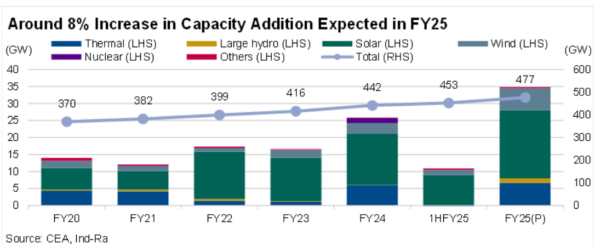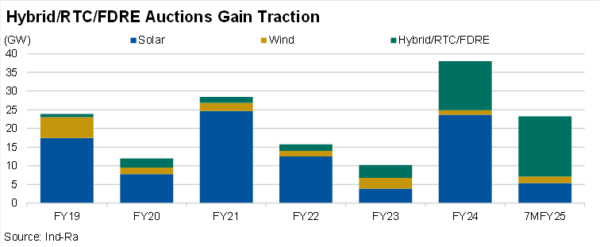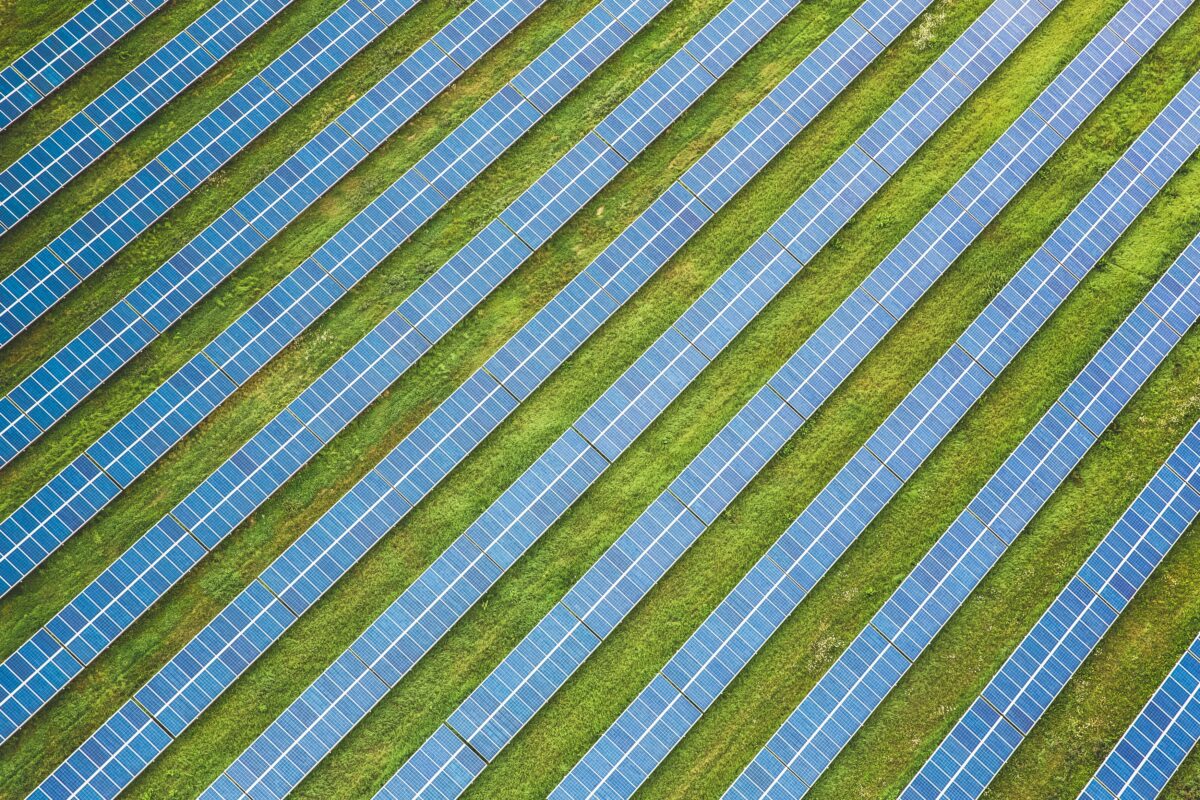From pv magazine India
India's power generation capacity reached approximately 453 GW by September 2024, with renewables, including large hydro, accounting for 45%, according to India Ratings & Research.
Renewable energy is expected to contribute 23% of power generation in fiscal 2025. The agency projects renewable capacity additions of 28 GW to 30 GW this fiscal year, following 11 GW installed in the first half of fiscal 2025.
Nearly 80 GW of solar, wind, and hybrid projects are under construction, with an additional 95 GW in development stages, indicating renewables will dominate future capacity growth.

India auctioned over 25 GW of renewable energy capacity from April to October 2024, surpassing 10 GW in fiscal 2023 but falling short of 38 GW in fiscal 2024. A growing share of these auctions focused on firm and dispatchable renewable energy, peak, and hybrid tenders, highlighting demand for storage-integrated renewables to address risks from variability and intermittency.

Ind-Ra analyzed India's power demand on May 23, 2024, when peak demand reached 235 GW at 3 p.m., while thermal plant load peaked at 176 GW around 11 p.m. as renewable supply dropped.
With solar dominating planned renewable additions, distribution companies face critical challenges meeting evening peak demands, driving higher merchant tariffs during these hours.
Ind-Ra estimates India will need 8 GWh to 12 GWh of storage by 2027 and 300 GWh to 350 GWh by 2030, requiring four to six hours of storage for peak periods.
With the large share of renewable energy addition planned to be solar, the requirement of a firm power supply in the evening peak hours remains critical for discoms. This is also leading to higher merchant tariffs during the evening hours than during solar hours.
Ind-Ra estimates India may require 8 GWh tp 12 GWh of storage by 2027 and 300 GWh to 350 GWh by 2030 with storage requirement of four to six hours during the peak hours.
This content is protected by copyright and may not be reused. If you want to cooperate with us and would like to reuse some of our content, please contact: editors@pv-magazine.com.




By submitting this form you agree to pv magazine using your data for the purposes of publishing your comment.
Your personal data will only be disclosed or otherwise transmitted to third parties for the purposes of spam filtering or if this is necessary for technical maintenance of the website. Any other transfer to third parties will not take place unless this is justified on the basis of applicable data protection regulations or if pv magazine is legally obliged to do so.
You may revoke this consent at any time with effect for the future, in which case your personal data will be deleted immediately. Otherwise, your data will be deleted if pv magazine has processed your request or the purpose of data storage is fulfilled.
Further information on data privacy can be found in our Data Protection Policy.